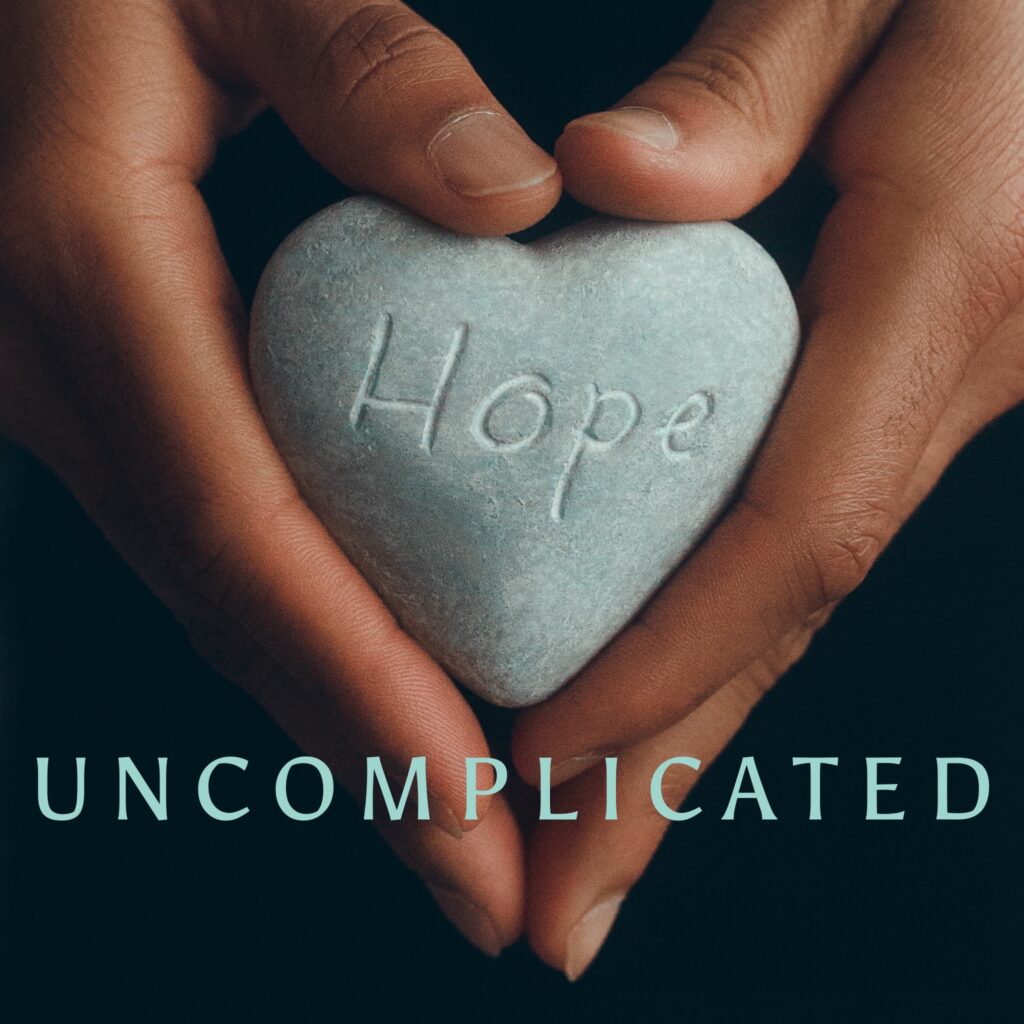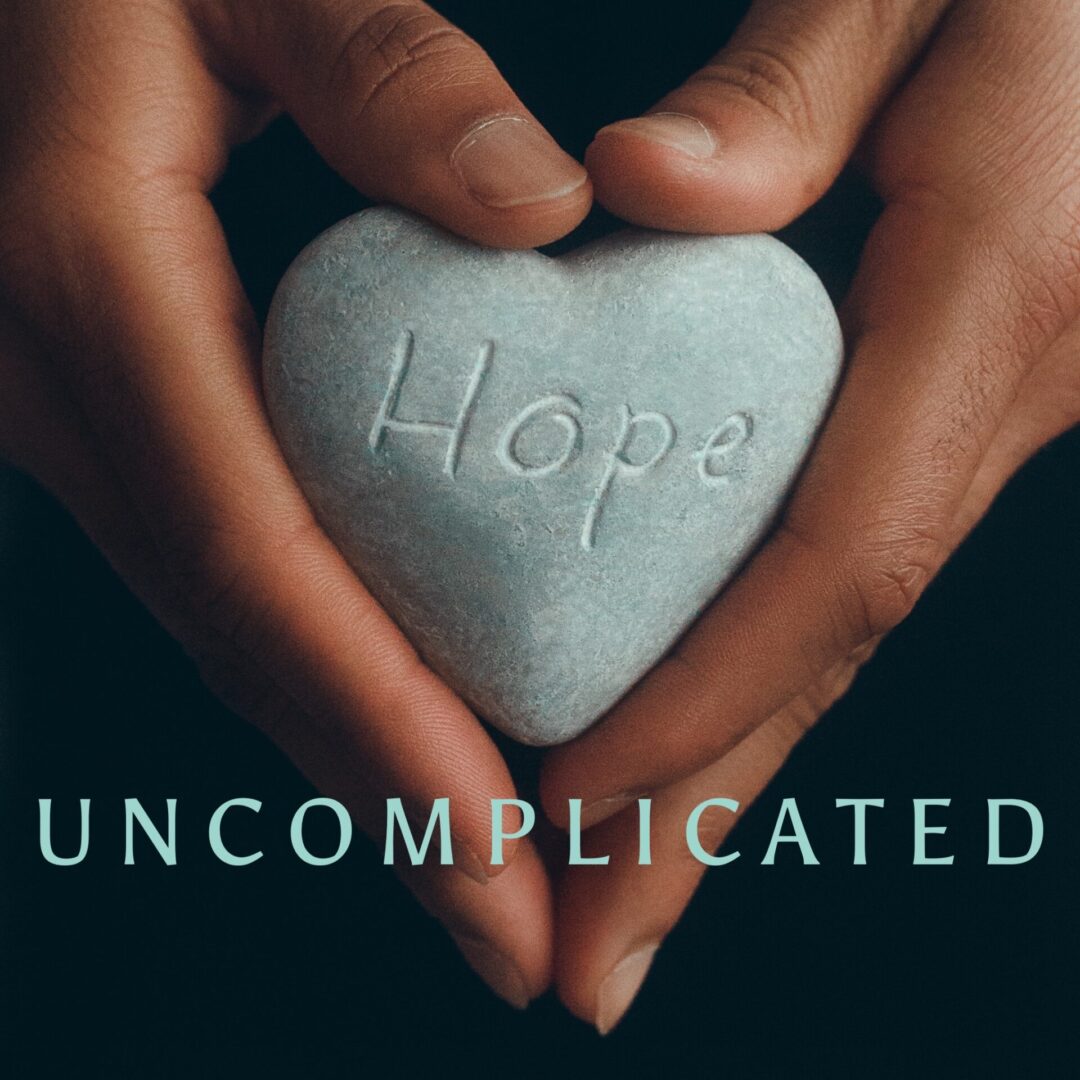Learning to read takes time in any language. However, learning to read in English wins the prize for being complicated. Just ask any first grader. There are hard and soft consonant sounds, long and short vowel sounds, blends, and silent e’s. To make things even more complicated there are rules like this: When there are two vowels, the first one does the talking and the second one does the walking. What does that even mean? Then, there are words that SOUND the same, but are SPELLED different, like whole and hole. There are also words that are SPELLED the same, but SOUND different, like permit (official document) and permit (give permission). Oh, my word! Have you thanked a teacher lately?
It gets even more “fun†when you have one word with multiple meanings. You know, like the word HOPE.
We can HOPE we will:
- Marry someday
- Have a baby
- Get our dream job
- Buy a house
- Find a good friend
- Stay healthy
- Have grandchildren
- Maintain healthy relationships
- Make a difference
You might call this kind of hope a wish. It acts as a verb. Some sort of action must take place for these things to happen. Yet, none of them are guaranteed. Complicated people and difficult circumstances often get in the way.
The apostle Paul occasionally used the word hope as this kind of future tense wish. He told the Romans, “I HOPE to see you in passing as I go to Spain.â€(Romans 15:24) When he encouraged the Corinthians to examine themselves to see if they were in the faith, he wrote, “I HOPE you will find out that we have not failed the test.†(2 Corinthians 13:6) Earlier, he had written, “I do not want to see you now just in passing. I HOPE to spend some time with you, if the Lord permits.†(1 Corinthians 16:7) Paul couldn’t guarantee these things would happen, but he desired them.
Our hopes are based on our desires. We hope for things we want or want to see happen. But what if what we hope for never happens? What if more than one someone in your life did all the talking and then kept walking? What if blended relationships begin to separate and God seems about as loud as a silent e? What if God spells out His desires for us, but they mean something different in our minds? What if we wanted more, but all we got was less?
Maybe it’s time to delight ourselves in the Lord so that He will plant new desires into our hearts - ones that are better for us. (Proverbs 37:4) It’s amazing the clarity that comes when we finally set aside our own desires and take a look at what God sees in us and for us. The more we delight in the Lord, the more our hope shifts from mere selfish, wishful desire to guaranteed assurance. This is the kind of hope that Paul spoke of repeatedly. In a letter to his friend Titus, Paul explained the importance of grace and offered a definition of hope. “For the grace of God has appeared, bringing salvation for all people, training us to renounce ungodliness and worldly passions, and to live self-controlled, upright, and godly lives in the present age, waiting for our blessed HOPE, the appearing of the glory of our great God and Savior Jesus Christ, who gave himself for us to redeem us from all lawlessness and to purify for himself a people for his own possession who are zealous for good works.†(Titus 2:11-14)
Simply put, Jesus is our hope. Our salvation is a sure thing! The writer of Hebrews says it this way, “We who have fled to him for refuge can have great confidence as we hold to the HOPE that lies before us. This HOPE is a strong and trustworthy anchor for our souls. It leads us through the curtain into God’s inner sanctuary. Jesus has already gone in there for us.†(Hebrews 6:18b-20a NLT)
With hope as our anchor, we can remain absolutely CERTAIN that Jesus has our spot in heaven reserved. Hope assures us that He will come for us and take us to the throne of God where we will be met with open arms. That’s not just a wish; that’s blessed assurance!
With hope as our anchor, we can be absolutely CERTAIN that the grace of Jesus keeps us covered in the here and now. This kind of hope reshapes our desires into ones that can’t be distracted by our own selfishness. Because our hope is in Jesus, our faith grows so large that our greatest desires become ones that help grow the kingdom. We are to “rejoice in hope, be patient in tribulation, and be constant in prayer.†(Romans 12:12 CSB)
If your patience has worn thin and your prayers have become pity parties, it’s time to hand over your selfish desires. Reach out for the new desires God has ready for you. Then, rejoice loudly in your hope. The English language may be complicated, but learning to speak God’s language just takes love.
“Three things will last forever—faith, hope, and love—and the greatest of these is love.†(1 Corinthians 13:13)












